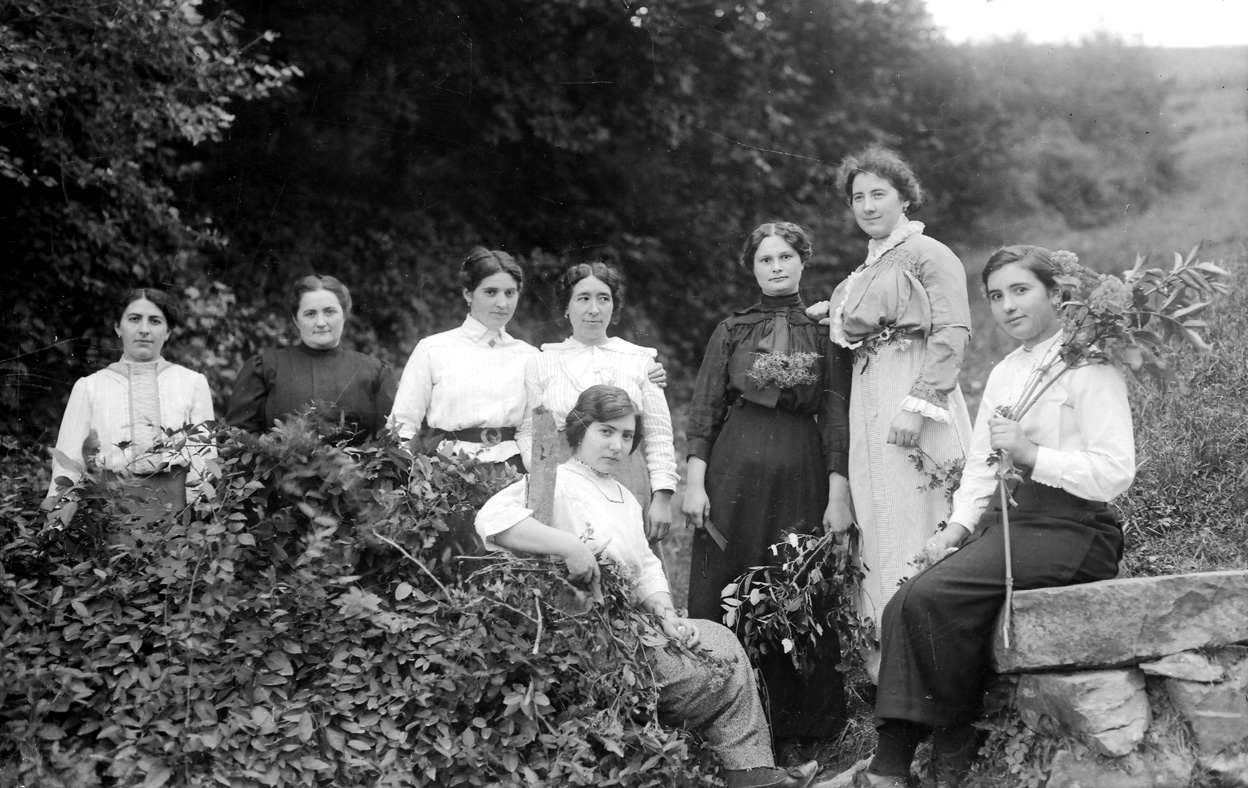Basque ethnography at a glance

Women from Zeanuri (Bizkaia). Felipe Manterola Collection. Labayru Fundazioa Photographic Archive.
Kinship terminologies are a recurrent subject of study for anthropologists. Authors such as Morgan have interpreted some of them as linguistic residues of former kinship systems.
Vinson, Aranzadi and Caro Baroja drew attention to the particularities of the Basque system of names applied to categories of kin, specifically the differentiation by gender of ego and ego’s brothers and sisters, suggesting the purpose of such a differentiation could have been to mark kinship with female members by means of the suffix –ba.
Basque for ‘brother of brother’ is anaia, which lacks of the said suffix; neba means ‘brother of sister’; arreba ‘sister of brother’; and ahizpa, where –pa is a derivation of –ba, is the unified form to mean ‘sister of sister’. Besides, seme is the word for ‘son’ and alaba ‘daughter’.
It was hypothesized the case could have been the result of a clash between patrilineal Roman law and a more ancient matrilineal pattern that might have once existed in our country. The suffix –ba is associated to blood ties between either female or female and male family members. It is therefore not unreasonable to assume names with a different ending would have been formed later, when both the mother’s and the father’s line were used to define kinship relationships.
Knowledge of the main concepts of the anthropology of kinship shows interest to identify individuals with their mother’s lineage is common to matrilineal societies, also known as matrilineages. These are social groups where inheritance and descent are traced through the women, and are thus characterized by matrilocality, or residence with or near the mother’s parents, and the privilege place occupied by the maternal uncle or avunculate in the kinship system and the upbringing of his sisters’ children.
The mother’s brother is called osaba in Basque, whereas izeba refers to the maternal aunt, both terms being marked with the suffix –ba. The issue of the avunculate seems likewise to be related to the confusion often arisen between the pairs asaba ‘grandfather’ and osaba ‘uncle’ on the one hand, and loba ‘niece’ and iloba ‘grandchild’ on the other.
In short, as explained above, the suffix –ba distinguishes terms that designate family relationships based on a system with a matrilineal emphasis.
Daniel Rementeria – Lorra Kultur Elkartea
Translated by Jaione Bilbao – Ethnography Department – Labayru Fundazioa

